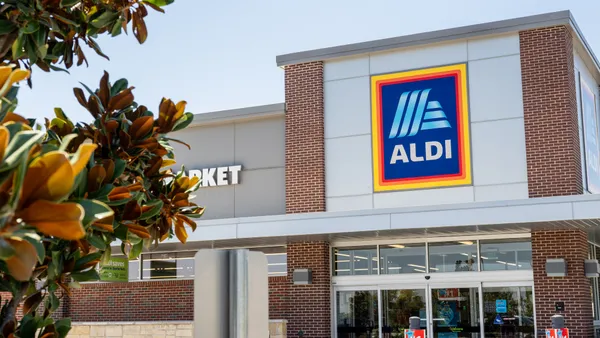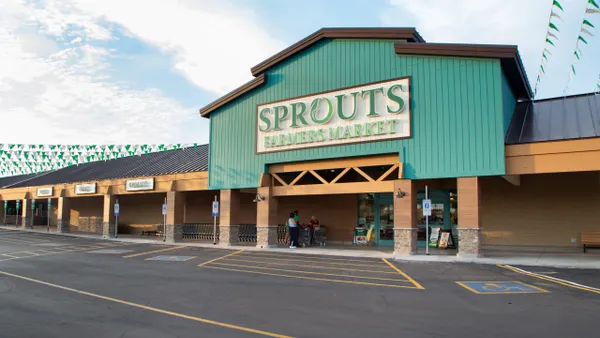Dive Brief:
- Kroger announced today it will phase out single-use plastic bags in its 2,800 stores by 2025 and offer only reusable bags. The grocer will begin with Seattle-based QFC, with plans to remove all plastic bags from the northwest banner by the end of next year.
- This initiative is part of Kroger's "Zero Hunger, Zero Waste" commitment to cut down on its environmental impact and feed the hungry. The grocer will seek out customer feedback, work with NGOs and community partners to ensure the plan goes through on time.
- "We listen very closely to our customers and our communities, and we agree with their growing concerns," said Mike Donnelly, Kroger’s executive vice president and COO. "That’s why, starting today at QFC, we will begin the transition to more sustainable options. This decision aligns with our Restock Kroger commitment to live our purpose through social impact."
Dive Insight:
The country's largest supermarket chain is taking one more step towards sustainability, and the move could have a significant impact on the grocery industry.
Although not the first grocer to announce a plastic-bag ban, Kroger is the first large-scale conventional grocer to do so. In 2008, Whole Foods announced it would go plastic-free but the grocer still uses single-use paper bags. Kroger's initiative would completely remove all single-use bags and only offer reusable bags for purchase or expect customers to bring their own. It's unclear if paper bags qualify as "reusable" to Kroger. Food Dive has reached out to Kroger for clarification.
Kroger’s plan would cut down on its environmental footprint. According to a statistic cited by Kroger, 100 billion single-use plastic bags are thrown away in the U.S. every year. The U.S. generates more than four million tons of plastic bags a year, and only 13% of it is recycled, according to the Environmental Protection Agency.
The move also falls in line with growing concern over plastic waste. Consumers have called for companies to ban single-use straws, leading some, like Starbucks, to do just that. A recent survey of 1,000 consumers, meanwhile, found that one-third would favor a tax on plastic food packaging. For Kroger, this could bring in customers that make shopping decisions based on environmental issues — especially as millennials, also known as the "green generation", who are willing to pay more at retailers who practice sustainability.
At the same time, it's hard to imagine there won't be at least some backlash to this move, especially if shoppers are expected to bring in reusable bags every time they shop. Kroger's messaging around this initiative and its ability to get consumers using the new bags will be crucial steps.
In addition to addressing environmental and consumer concerns, Kroger may also have an eye on the regulatory environment. Along with the recent ban on plastic straws, some states and cities like California, New York City, Chicago, and Washington D.C. have already banned single-use plastic bags or charge a fee for them. Many more states and cities are working on adapting this initiative as well. Kroger could see this as an opportunity to get ahead of regulations, knowing that eventually, they will have to remove plastic bags anyways. This way, the company comes out as the hero.
Along with recent investments in e-commerce and store technology, Kroger's bag ban is yet another example of the retailer looking to the future. Look for other grocers to closely watch this development, and to follow suit with their own plastic bag bans if it proves successful.









